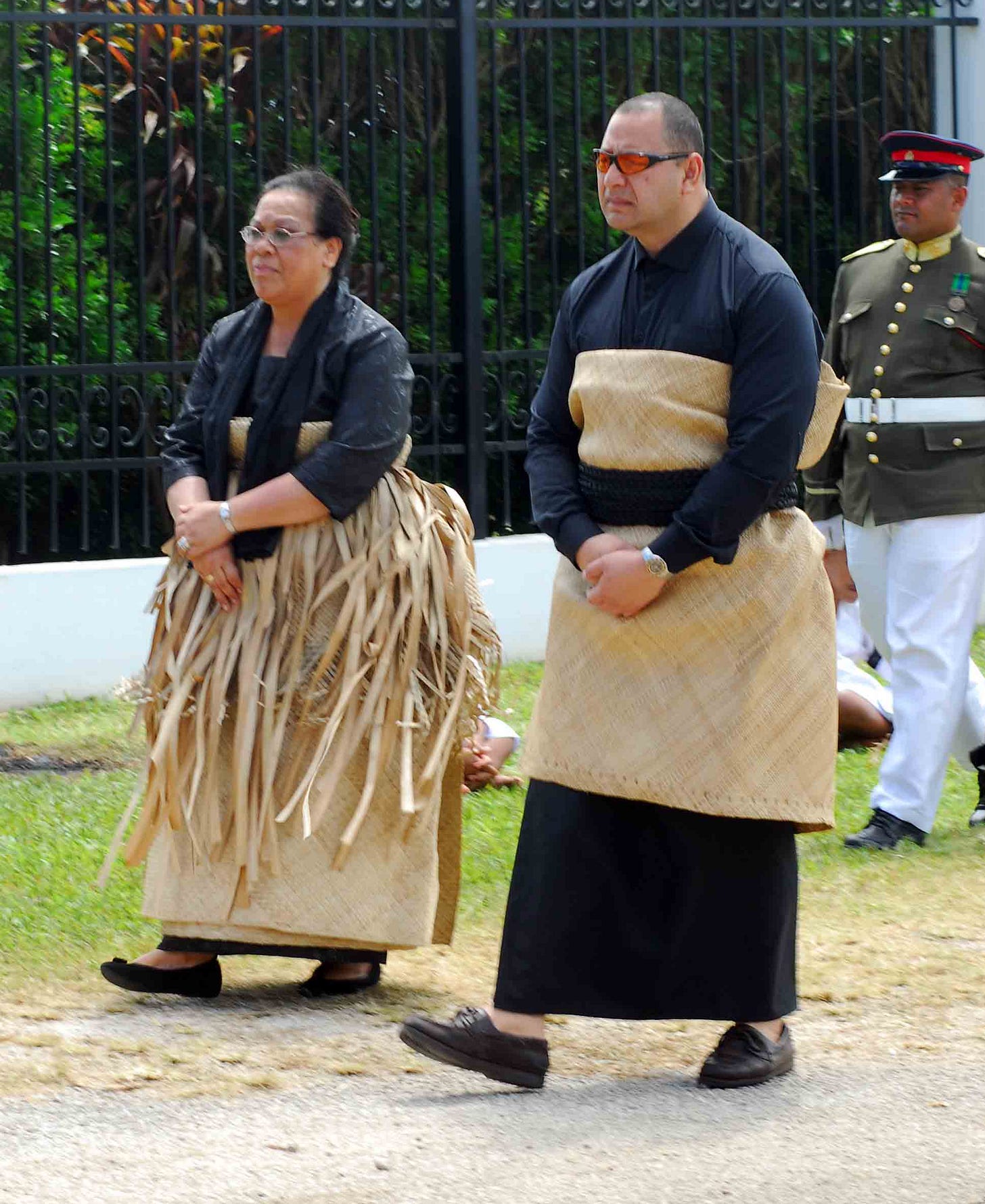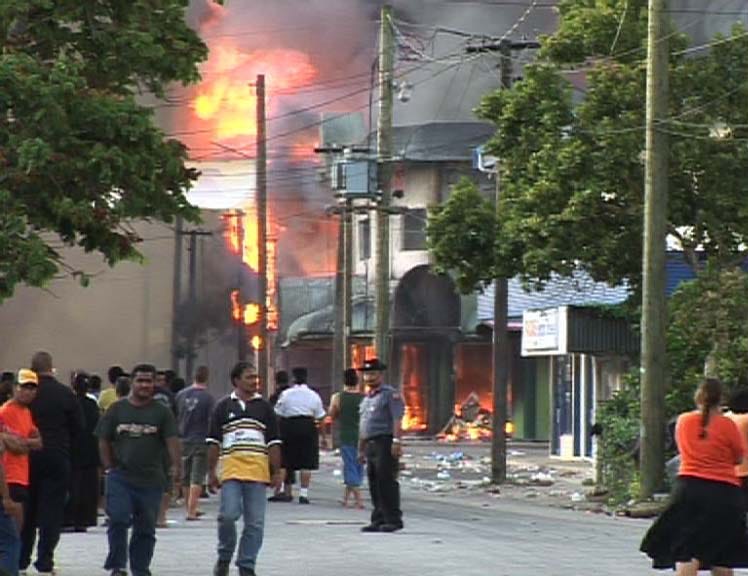Tonga’s King Tupou VI is using his unelected Privy Council to scrape back the power his predecessor brother lost to the kingdom’s 110,000 commoners eight years ago. The actions by the 64-year-old, who has been king since 2012 when his brother George V died, signals a return to the kind of near-absolute rule of previous monarchs in the Pacific kingdom. All six monarchs, including the widely respected Queen Salote Tupou III, had little time for the Fale Alea or Parliament, even when it was royal and noble controlled.
Tupou VI has long been intensely at odds with the democratically elected government of 53-year-old Prime Minister Siaosi Sovaleni, who styled as Honourable Hu'akavameiliku. The latest drama came this week when Tonga’s Lord Privy Seal, Viliami Malolo, sent a short memo, in English, to the secretary to cabinet, Paula Ma’u was to inform him of a February 2 decision of the king’s Privy Council:
His Majesty, was pleased, by and with the advice of His Privy Council, to withdraw His confidence and consent to the appointment of the Hon. Hu’akavamiliku as the Minister for His Majesty’s Armed Forces; and.
His Majesty, was further pleased, by and with the advice of His Privy Council, to withdraw His confidence and consent to the appointment of the Hon. Fekitamoeloa Katoa ‘Utoikamanu as the Minister for Foreign Affairs and as Minister for Tourism.
That was it, no other discussion or explanation. This latest action demonstrates a kind of grab back of power that George V was forced to do in the wake of the November 16, 2006 Nuku’alofa riots. Both kings struggled to suppress the democracy movement created by the late commoner member of parliament, ‘Akilisi Pohiva (1941-2019).
This week’s royal grab, points to a report in 2014 by constitutional authority Peter Pursglove of the Commonwealth Secretariat, London. In Review of the Constitutional Provisions Relating to the Judicial Structure of the Kingdom of Tonga Pursglove said:
‘The present Constitution of Tonga can lay claim to being the most poorly structured and drafted Constitution of any country in the Commonwealth. When one considers the justifiable pride felt by Tongans everywhere in the First Constitution handed down by King George Tupou I in 1875, this is truly a very sad state of affairs in a Kingdom that has one of the world’s oldest surviving written constitutions.’
Tupou VI has used that same constitution against the elected government. Spanish has a word for it: autogolpe, or self-coup. Matangi Tonga, reports that the king’s steps ‘raised more questions than answers.’ Noting the removal of the defence portfolio from the prime minister, and the dismissal of the foreign minister, it quoted Radio Tonga reporting that: ‘the king is not satisfied with two ministers’. Matangi Tonga said it was not clear whether or not the king was revoking the appointment of the two ministers, or just expressing his displeasure. Deputy Prime Minister Samiu Vaipulu told the news outlet: ‘what the radio said is true they got that information from me.’
The prime minister is receiving medical treatment in Auckland and the foreign minister is attending a European Union meeting in Belgium. Presumably she has been told her per diem has been sharply reduced. Arriving into the crisis today is Aotearoa New Zealand Foreign Minister Winston Peters.
KanivaTonga website noted a sequence of problems for the government with the king:
The fact that the King withdrew his consent following the advice of the Privy Council will also re-awaken concerns raised as far back as 2017 about the role of the king’s counsellors. The then Justice Minister Vuna Fā’otusia said decisions made by Parliament were sometimes vetoed by His Majesty because of advice from the Privy Council. He said the members of the council were not chosen by the people. It is about a decade since lawyer Peter Pursglove said that Tonga’s 2010 constitution was the poorest among all Commonwealth countries. He made suggestions to improve it, but progress had been stalled. Pursglove expressed concern about the role and the establishment of the privy council.
The Tonga Independent said ‘developments suggest a deterioration in the trust His Majesty places in the current government, attributed largely to instances of overreach and incompetence…. These actions indicate a significant departure from the traditional collaboration between the Prime Minister and His Majesty.
This action has regional implications. In November, in Tonga’s royal assault on democracy, I reported that the Pacific Forum had decided this year’s summit would be in Tonga. Given the forum’s previous declarations on good government and democracy, the selection of Tonga as the host is fraught with contradictions. The Kingdom of Tonga is not democratic, it is poorly governed, it's far from clear who governs and there are seeds of a rerun of the November 16, 2006 Nuku’alofa riots. To put it briefly, the pro-democracy movement founded by Pohiva has mostly failed. The Tupou Royal Family has succeeded in regaining ground lost since Pohiva’s glory days.
I argue that the nominal appearance of democracy cannot however hide the fact that Hu’akavameiliku and the Fale Alea (and by extension the 99 percent of Tonga’s people who are ‘commoners’) have no real power. Since taking the throne in 2012, the king has refused to have anything to do with his parliament. He doesn’t open or closed the assembly, he sends one of his heirs along to do it. Bills from the Fale Alea are ignored, cabinet appointments sit untouched.
In 2021 the king questioned the honesty of the members of parliament and their ability to run the government. It was as if the corruption of his two predecessor kings, and his princess royal sister, did not exist. As Kaniva website commented ‘some citizens may fear they are being punished for wanting to live in a fully functioning democracy’. With the forum decision on next year’s venue, Honourable Hu'akavameiliku becomes leader of the 18 nation Pacific Forum. No doubt Tonga’s political mess will be glossed over, but given the forum's 2018 Bikitawa Declaration, the king’s role has to be questioned. Bikitawa, which Tonga signed, committed members to ‘good governance…in a manner that is open, transparent, accountable, participatory, consultative and decisive but fair and equitable.’ As the memo from the Privy Council shows, Tonga is nowhere near that.
©Michael J Field
In my substack postings…
Tonga’s workers call for a leader
‘I have been to the hotel many times and seen at least four nobles and nobles’ heirs argue and talk like angry dogs, behaving in an uncouth manner. They didn’t seem to have much patience and saw no obstacle to shouting down their opponents or in one way or another trying to win an argument unfairly.‘
The statement appears to question whether paraquat is even harmful: ‘Some of the concerns raised are the chemical kills not only weed, it is also poisonous and is connected to a lot of suicide cases in Sāmoa and kills dogs.’ Unnamed consultants had findings on this in the report the ministry has yet to release. But, says the statement: ‘there were no substantial evidences (sic) from the organisations that initiated the call for ban. They have no data or evidence to support suicide cases and dog killing, therefore direct correlation to paraquat hasn’t been conclusively established.’






